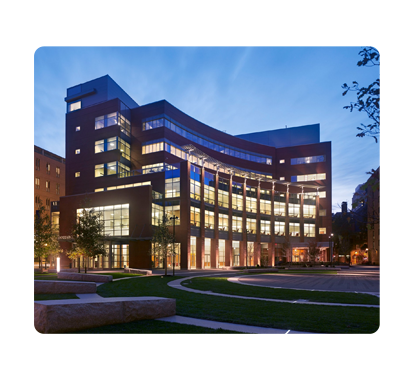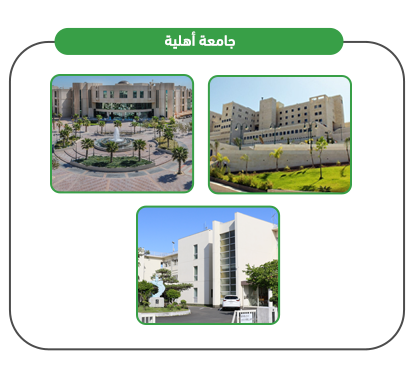The feasibility study for a private university project aims to conduct a comprehensive and integrated assessment of the economic, technical, and administrative aspects, ensuring the establishment of a leading educational institution that meets the needs of society and contributes to enhancing the quality of higher education. The study is based on an in-depth analysis of the target market to determine the demand for academic specializations and innovative educational programs, taking into account modern trends in education and changing labor market requirements. The study includes estimating the costs associated with establishing the project’s infrastructure, including equipping classrooms, laboratories, libraries, and sports facilities, in addition to calculating operational costs and potential revenues from tuition fees and other services. The study also focuses on legal and regulatory aspects, by identifying licensing requirements and accreditation of academic programs to ensure compliance with local and international standards. It should also be noted that the study includes developing effective marketing strategies aimed at attracting students and qualified faculty members, thus strengthening the proposed university’s position as a distinguished educational institution.

The Private University Project is a private educational institution that aims to offer pioneering academic programs that meet students’ aspirations and align with the evolving needs of the labor market. The university seeks to provide an advanced educational environment based on the latest technological means and educational methodologies, enhancing the quality of higher education and contributing to the preparation of qualified personnel capable of leading economic and social development. The university offers a diverse range of academic programs spanning scientific, literary, technical, and engineering disciplines, with a focus on advanced curricula that keep pace with the latest global developments. The university places special emphasis on attracting qualified and experienced faculty members, while supporting scientific research and encouraging innovation to promote academic excellence. On the practical level, the university seeks to develop strategic partnerships with international and local institutions to provide practical training opportunities for students, giving them a competitive advantage in the labor market. The Private University Project represents a model of distinguished higher education that enhances the quality of educational outcomes and positions the proposed institution at the forefront of academic choices for students aspiring to a promising and bright future.



Academic programs that meet labor market needs.
High-quality education with qualified faculty.
Modern facilities and advanced educational technologies.
Partnerships with the labor market and training opportunities.
Diverse student activities.
Flexible scholarships and funding programs.
Locally and internationally accredited degrees.
Exchange opportunities and partnerships with international universities.
Executive summary
Study project services/products
Market Size Analysis
Risk Assessment
Technical study
Financial study
Organizational and administrative study

The Education Sector in the GCC Countries
Believing in the importance of the education sector and its role in promoting the localization of the national workforce, Mashroo3k for Economic Consultancy and Market Research is pleased to present the following key indicators of the education sector in the Gulf Cooperation Council (GCC) countries, inviting investment in this vital field:
The total number of students in Early Childhood Development (including nurseries and kindergartens) across the GCC reached approximately 851,500 students, according to the latest available statistics.
The number of students enrolled in school education stages across the GCC is estimated at around 9.3 million students (79.4% in the public sector and 20.6% in the private sector).
The number of learners in adult education centers is estimated at 181,247 students.
The number of students enrolled in higher education institutions stands at 2,206,446 students.
The number of early childhood teachers is approximately 50,647.
The number of school education teachers is estimated at around 727,904.
There are 5,806 operational early childhood education institutions.
There are 32,310 operational school education institutions.
Over the past years, GCC governments have actively sought to bridge the gap between education and the labor market by adopting educational curricula that emphasize vocational and technical education and encourage learning through modern technologies and digital platforms. It is also worth noting the increasing investment in education quality across the six countries to produce graduates who meet the private sector’s workforce requirements.
According to the latest statistics:
Saudi Arabia allocates 18.9% of its budget to education.
The UAE allocates 14.8% of its budget to education.
Oman allocates 12.2% of its budget to education.
Bahrain allocates 9.8% of its budget to education.
Kuwait allocates 12.3% of its budget to education.
Qatar allocates 10.5% of its budget to education.
By 2023, the value of the private education market in the GCC is expected to reach USD 26.2 billion.
The Global Education Sector
The global education services market was valued at approximately USD 2,882.52 billion by the end of 2021. Experts project that the market will reach USD 3,191.79 billion by the end of 2022, achieving a compound annual growth rate (CAGR) of 10.7%. Furthermore, by 2026, the market value is expected to rise to USD 4,623.90 billion, reflecting a CAGR of 9.7% over the forecast period.

Investment in the Saudi private education sector grew by 3% in 2016, rising to 15.5% compared to 12.5% in 2015. Investment in the private education sector has increased over the past five years, reaching approximately 10 billion riyals.